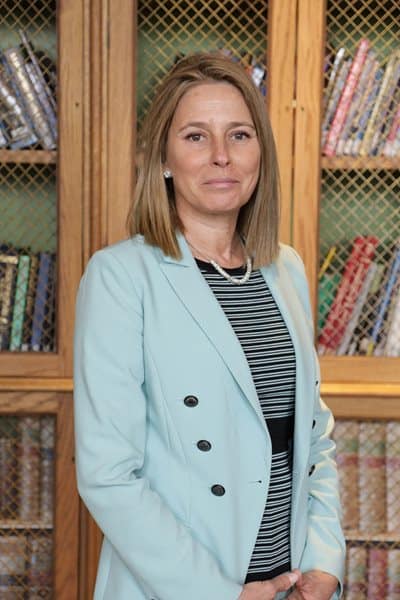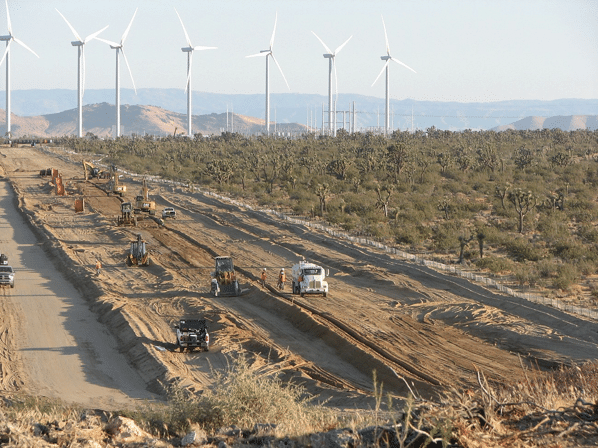Atomic Show #302 – Dr. Sama Bilbao y Leon, Director General, World Nuclear Association

Dr. Sama Bilbao y Leon, the Director General of the World Nuclear Association, visited the Atomic Show to provide an international perspective on the revival in interest in nuclear energy deployment.
As the head of the organization that represents the global nuclear industry, provides education about all matters related to using nuclear technologies, and lobbies for recognition of the value that nuclear energy provides, she is uniquely able to describe what the world is thinking about building and operating a wide variety of nuclear energy generating systems.
Dr. Bilbao y Leon shared valuable messages from her conversations with world leaders during the recent Conference of the Parties in Egypt (COP27) .
“A very important dimension of decarbonization tends to be forgotten. When we are looking at the global north as in developed countries obviously we are focused on decarbonization, reducing emissions, energy efficiency, being more cost effective and more effective in how we use the energy that we do have.That is the transition that we are looking towards – cleaner energy. But when we are looking to the global south, their energy transition goes from no energy to energy.”
“You have a lot of countries saying, ok people. Yes, we want to decarbonize, yes we want to use our resources as effectively as possible, but we also – and foremost – want to achieve the standard of living that you guys are already enjoying.”
“More and more countries, particularly in the global south, are realizing that nuclear is truly – or could be potentially – a game changer when it comes to providing abundant, clean, affordable 24 x 7 energy – not electricity, energy – for everybody.” Dr. Sama Bilbao y Leon, the Director General of the World Nuclear Association
We talked about the utility of small modular reactors (SMR) in bringing nuclear energy benefits to a broader selection of energy consumers – a term that includes all of us.
Aside: Our conversation took a personal side trip to a time when Sama Bilbao y Leon, then a graduate student at the University of Wisconsin, was intrigued by a “crazy” talk describing the benefits of nuclear systems small enough to be called atomic engines. End Aside.
We talked about the process that countries undertake when they choose to develop the capability to own and operate nuclear power plants. We speculated on nuclear energy’s potential to provide the kind of “leapfrog” advance demonstrated by mobile phone technology.
We also talked about ways to respond to inaccurate arguments claiming that there are no small modular reactors operating or that they are untested and unproven technologies.
Dr. Sama Bilbao y Leon brings a diverse resume to her job. She started her professional career as a nuclear safety engineer with Dominion, a major utility with a large nuclear plant operating arm, became an associate professor of nuclear engineering at Virginia Commonwealth University – where she played a leading role in establishing a new nuclear engineering degree program – and served in a variety of leadership positions at international organizations like the IAEA and the NEA.
She holds a PhD and master’s degree in Nuclear Engineering from the University of Wisconsin Madison,, a master’s (Energy Technologies) and bachelor’s (Mechanical Engineering) degrees from the Polytechnic University of Madrid.
I hope you enjoyed the show. Please participate in a conversation about the topics discussed. It would also be helpful and appreciated if you could take the time to provide a review of the Atomic Show on your podcast app of choice.
Podcast: Play in new window | Download (Duration: 39:16 — 45.3MB)
Subscribe: RSS




Good Episode – Good overall summary of present conditions and it appears positive.
Suggestion – The Russian company Rosatom Nuclear seems to have quite a world wide presence. I checked the podcasts and didn’t see anything about them since episode 54. To be honest, I didn’t go back any further. I’m just suggesting that some aspect of this company may be worth an episode of some sort. It could be timely since they have had some peripheral involvement with the horrible war in Ukraine.
Yes, the Russian government is FINANCING and building large PWRs with risky (bad credit) customers from Bangladesh to Egypt. USA prefers to just give the money away without building the infrastructure.
The prospect of SMRs suddenly appearing all over the energy-poor world is very attractive from a decarbonisation point of view. However the proliferation police need reassurance that no one could run their brand-new pure-uranium fuel for only as long as it takes to breed up a small quantity of Pu239 before it becomes denatured by Pu240. The possibility could be averted by alloying in enough recycled fuel to ensure there is always a denaturing level of Pu240.
@Micheal scarangella
Agree. Many influential people in the US seem to prefer giving money to poor countries and poor people who live in the UD instead of investing in helping them become more independent and productive.
That seems especially true when it comes to nuclear energy.
I can’t imagine why. Perhaps others can explain.
Thanks Rod for inviting Dr. Bilbao y Leon of WNA to the podcast for
an excellent interview. Regarding responses to inaccurate claims of
the nonexistence of small modular reactors and nonexistence of their
testing, here’s an interesting news report by WNA on China’s recent
demonstration of a two-module gas-cooled pebble bed reactor prototype:
Article: China’s demonstration HTR-PM reaches full power
Source: World Nuclear News, 09 Dec 2022
URL: https://www.world-nuclear-news.org/Articles/China-s-demonstration-HTR-PM-reaches-full-power
So as people in the US argue that 100% renewable grids are
the only way to fight climate change, that pebble-bed nuclear
reactor designs are inherently too expensive, and that SMRs
generate too much nuclear waste, I think that we’d be better
off spending less time on these debates and putting more of
our own resources into learning by doing, starting with facts,
science, and STEM education.